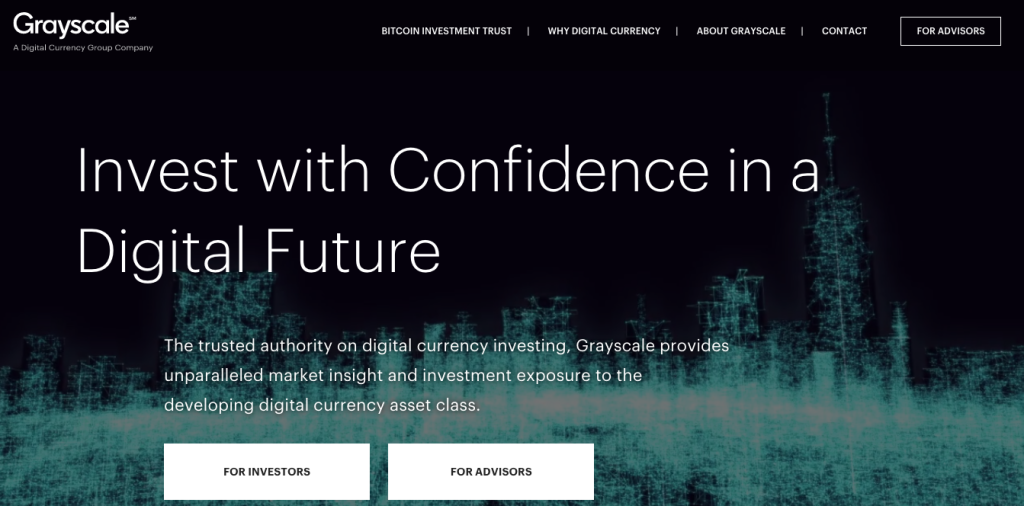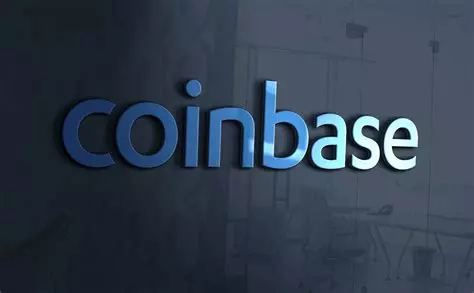Finding this gem on Reddit, I was able to get my hands on a copy of the 200 page GBTC OTC disclosure report. Its 200 PAGES! Let’s condense that you guys, shall we?

Disclaimer: I AM NOT A LAWYER! I AM NOT A CERTIFIED FINANCIAL PLANNER! I AM NOT A TAX ATTORNEY! WHATEVER I INFER FROM THIS DOCUMENT REFERENCED IS OF MY OWN OPINION AND SHOULD NOT BE CONSTITUTED FOR LEGAL OR INVESTMENT ADVICE!
With that out of the way:
1st off, on the top of the first page, what’s industrial code: 6221? According to this, It’s a standardized industrial code meaning: Brokerage Services Firm. Okay cool…
On Page 4, the ‘glossary’ mentions:
The Constituent Fees, the Shareholder Communications Hub fee, Transfer Agent fee, Trustee fee, OTCQX Fees and expenses related to public trading on OTCQX in an amount up to $600,000 annually (including legal and audit fees and expenses), any other legal and accounting fees, regulatory fees, printing and mailing costs, and applicable license fees.
Where did that figure come from? If their prior statement of approximately 2% administrative cost to manage the fund per year is used as a metric, then we could perhaps conclude they anticipate the value of the entire fund to reach approximately $30,000,000?
Apparently, this number of $600,000 is an arbitrary figure shown to be the estimated fees to be paid to OTCQX solely and has nothing to do with the estimated net asset value of the trust.
Interestingly, on page 5 it mentions how the fee schedule is determined:
“Combined Fee Exchange Rate” — The exchange rate that will be used to convert the Combined Fee from USD to the appropriate number of bitcoins. It is calculated based upon the Bitcoin Market Price at 4:00 PM New York time in the case of daily accruals and as of the day of each withdrawal and payment in arrears. The Combined Fee Exchange Rate does not include fees and expenses for converting USD into bitcoins.
That sentence was a mouthful! Interesting to now know when they calculate their fees rate! With this knowledge in hand, we can be more keenly aware of market manipulation to falsely inflate the price of bitcoin – particularly around 4pm EST. In the coming weeks, keep your eyes peeled for heavy influxes of trading activity occurring @ 4pm EST. If fund administrators were looking to extract more fees, they would schedule pumps around 3pm EST to inflate the price and peg the inflated rate before gradually dumping their shares to exit. While their fee structure is stated to be below $600,000 USD per year, through pumping and dumping they could earn close to that amount without needing to hold $30MM in asset backing potentially.
Based on Page 6 it appears they plan to use Tradeblock’s composite index to establish Bitcoin Value
Stored for Archiving purposes:
Terrence Dempsey
Manager
Grayscale Investments, LLC
636 Avenue of the Americas
New York, New York 10011
Telephone: (212) 668-6682
Facsimile: (917) 677-8691
Email: info@bitcointrust.co
Literally, in case things go awry for you.
What is the ticker Symbol?: GBTC
CUSIP number for its Shares: 09173T108
Page 10 seems to be where everyone is getting mis-information about the min 100 shares BS. Okay guys, The TRUST (Greyscale Investments) has the right to increase or decrease the number of shares in the trust. In other words, Greyscale, at their own discretion, can increase or decrease the amount of shares available, but only in blocks of 100 shares at a time.
(as of the disclosure there are 1,382,400 shares available (approximately 13.824K Bitcoins as the base asset backing the Trust)
The trust will only sell shares to Authorized Participants, not to end-user shareholders (like you and me)
Shareholders cannot participate in management activities regarding running the Trust, BUT, shareholders Can vote to remove and replace the Trust (Greymarket Investments, LLC) with a vote of at least 75% of existing shareholders. (seems like standard legal practice if anything, but interesting to know none the less).
The bottom of page 10 is a real doozy: As of right now, it appears that legally, shares cannot be redeemed for BTC directly as it Violates Regulation M Rules:
…Among other things, the staff stated that it had concluded that the Trust’s redemption program appears to violate Regulation M under the Securities Exchange Act because redemptions of Shares take place at the same time the Trust is in the process of creating Shares.
Reading this sentence on Page 11 sends a cringe down my spine:
The investment objective of the Trust is for the net asset value (“NAV “) per Share to track the Bitcoin Market Price per Share, less the Trust’s liabilities (including estimated accrued expenses).
In other words, I’m buying a share of their trust which is pegged against the price of bitcoin minus their cut for ‘administering’ it. And also:
The payment of expenses by the Trust will result in a taxable event to Shareholders.
but this seems standard practice as well so not necessarily any red flags from seeing this, just keeping you in the loop! It also looks like at the end of each month the Trust publishes all outstanding shares owned, which means you can keep an eye on growth if you wish.
If you’re following along with my page counts, it appears that page 15 gets into the Meaty Saga that is Bitcoin
Fun Fact insert:
…in 2010, a hacker or group of hackers exploited a flaw in the Bitcoin Network source code that allowed them to generate 184 billion bitcoins in a transaction and send them to two digital wallet addresses.
And on page 23:
Additionally, PayPal recently announced that it would allow merchants that use its payment processing services to accept bitcoin.
Oh Really!?! That’s news to me, source???
Towards page 32, we learn their legal definition of an Authorized Participant (you know, the ones who can actually buy and sell baskets of shares for Bitcoin itself)
Authorized Participants are the only persons that may place orders to create and redeem Baskets. Each Authorized Participant (i) is a registered broker-dealer, (ii) has entered into a Participant Agreement with the Sponsor and the Trust, and (iii) has access to an Authorized Participant Self-Administered Account
on the bottom of the page, it names SecondMarket as the ONLY Authorized Participant (As of March 2nd 2015).
It appears that any bitcoin sent into the storage and/or safekeeping accounts that is not from Authorized Participants will be considered rejected and returned.
The delivery of the Shares against deposit of the Creation Basket Bitcoin Amount may be suspended generally, or refused with respect to particular requested creations, during any period when the transfer books of the Sponsor are closed or if any such action is deemed necessary or advisable by the Sponsor for any reason at any time or from time to time. None of the Sponsor or the Custodian will be liable for the rejection or acceptance of any creation order or Creation Basket Bitcoin Amount.
The block quoted above, found on page 33 is a bit concerning – if I’m understanding this correctly, Greyscale can, at its own will, choose to deny, reject, or suspend requests to create new shares. Why would Greyscale do this? Remember when I said, hmm 75% VOTE??? It appears this gives Greyscale a mechanism to prevent Dilution which could be used to subvert control by akin to a hostile takeover.
Also concerning here on the next page:
The Sponsor may suspend redemption orders if it determines, in its sole discretion, that a suspension is necessary or desirable. Suspension of redemption orders at any time and for any reason may have adverse effects on the market for, the market price and the NAV of the Shares.
Greyscale has the ability to reject redemption of shares into BTC if it so chooses – a method to prevent the shrinkage of outstanding shares and ultimately to preserve the net Asset Value of the trust, if necessary. Kudos for at least stating immediately thereafter that it could be very detrimental (‘adverse’ is ALWAYS considered negative (unpredictable) in the finance world) to take such actions.
On page 35, it appears that Greyscale does indeed receive a 2% ‘combined’ fee. Here’s where things get tricky though: They calculate their fee as accrued daily interest that is the equivalent of 2% APY. Their fee is denominated in USD, but they are to be compensated in BTC, at the sole discretion of the Greyscale, and further, can be set to be converted to USD to be disbursed, if such a situation is advantageous. Basically, they are able to choose at their own discretion when and where to withdraw their fees and they are allowed to mitigate volatility risk by either demanding USD value or Bitcoin (by requesting the equivalent accumulated earned value of BTC, they may receive Bitcoin that was valued lower than current market rate and can use this advantage to profit at the expense of the NAV of the Trust (in times of price stability this will likely not occur, but in times of high volatility, Greyscale has the advantage of being able to choose which way to be compensated). It is my belief that this mechanism creates a conflict of interest between the GBTC Trust and Greyscale, as BTC can be fleeced from the Trust in bearish market rallies (and sat on for conversion into fiat when the market conditions become bullish again)
Payments to OTCQX in excess of $600,000 and other unforeseen expenses:
If Extraordinary Fees are incurred, the Trust will be required to pay these Extraordinary Fees by selling bitcoins and, as a result, both the NAV of the Trust and the number of bitcoins represented by a Share will decline at such time.
In case you’re Roger Ver or have similar holdings, then this following block applies to you:
Shareholders do not have the option of choosing to pay their proportionate share of the excess expenses in lieu of having their share of expenses paid by the Trust’s sale of bitcoins
The fact that I’m only on Page 37 of a 200 Page document and we’re on Risk Factor’s already scares me. While most of it is reasonable to see, tucked between pages 41 and 42 in bold,:
If regulatory changes or interpretations of the Trust’s activities require the regulation of the Trust as a money service business under the regulations promulgated by FinCEN under the authority of the U.S. Bank Secrecy Act, the Trust may be required to register and comply with such regulations. To the extent that the Sponsor decides to continue the Trust, the required registrations and regulatory compliance steps may result in extraordinary,
42
recurring and/or non-recurring expenses to the Trust. The Sponsor may also decide to terminate the Trust. Termination of the Trust in response to the changed regulatory circumstances may be at a time that is disadvantageous to investors.
From there, a few similar sounding paragraphs go in full detail to explain that if similar items were to be handed down instead to an Authorized Participant (SecondMarket), that the Authorized participant could either choose to proceed and extraordinary expense, justifying higher commission costs for holding the asset, or that, should Authorized Participants leave, “Such a termination may decrease the liquidity of the Trust.”
While the above is lackluster, By far, and moving onward, Page 47’s bold text was both transparent and terrifying:
The Sponsor and its affiliates have relationships with TradeBlock that could lead the Sponsor to favor the use of Index to calculate the Bitcoin Market Price. This may adversely affect the Bitcoin Market Price and therefore an investment in the Shares.
Its not so much that any malicious activity will occur, its just we can see that there is a high indication that IT COULD occur. Notice that prior to this statement on the comment block above (which was in bold by the way), was given after this snippet of text:
The Index is based on various inputs which may include spot currency exchange rates, over-the-counter trade data, derivative instrument pricing, or data from other related financial products. TradeBlock does not guarantee the validity of any of these inputs, which may be subject to technological error, manipulative activity, or fraudulent reporting from their initial source. TradeBlock is not required to publicize or explain the changes, nor to alert the Sponsor to such changes.
This seems to be a way to allow Greyscale to mitigate the blame back upon Tradeblock, although, as discovered on page 49, this would likely backfire greatly as Tradeblock provides services to SecondMarket (The only Authorized Participant currently). The GBTC Trust, Greyscale, SecondMarket were founded by Barry Silbert and Barry also holds a 1.5% voting interest in trade-block – showing how intermingled the companies are in this endeavor.
Another “Gotcha” that shouldn’t come as a surprise to veteran bitcoin holders: The Tax Implications. One warning mentioned is that:
The Custodian will withdraw bitcoins from the Trust to pay ordinary and extraordinary expenses, thereby reducing the number of bitcoins represented by each Share and potentially resulting in adverse tax consequences for Shareholders
Long Term Capital Gains Tax more than likely to occur if a black swan event happens OR potentially if excessive expenses occur to force Greyscale to liquidate more Bitcoin. (especially if said bitcoin had appreciated in value since acquisition).
I’m onto Page 55 now and I see that there is a stipulation for redeeming back bitcoin that only Authorized Participants (Second Market) are allowed to redeem shares if enabled and only in whole baskets (denominations of 100 shares) (it is disabled as mentioned earlier due to Regulation M rules with the SEC).
And with that, I’m calling it quits, for now! Stay tuned for Part 2 coming soon!






1 thought on “GBTC Disclosure Summary: TL;DR Edition – Part 1”
GBTC Disclosure Summary: TL;DR Edition – Part 2 - Bitcoin is the Honey Badger of Money
(April 30, 2015 - 12:21 pm)[…] those who didn’t catch, here’s part 1. (Before […]